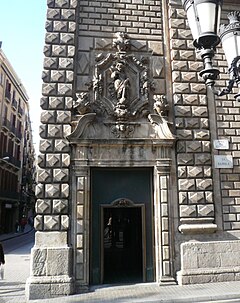26th Sunday of the Year A (25 Sep 2011)
Ez 18. 25-28; Ps 25; Phil 2. 1-11; Mt 21. 28-32
Homily of Fr. Paul Panaretos, S.J.
Choosing Divine Life
The prophet Ezekiel preached a revolutionary message that marked an evolutionary change in a belief, which the people Israel had long held. God through Prophet Ezekiel challenged it: the word of the LORD came to me: Son of man, what is the meaning of this proverb that you recite in the land of Israel: “Fathers have eaten green grapes, thus their children’s teeth are on edge?”1 People used that proverb to claim that they were being punished for their ancestors’ sins rather than for their own. God challenged that, and the prophet preached a message of personal responsibility, and he received resistance to his message: If my parents were godly, then I deserve their blessings even if I live in ungodly ways. If bad things befall good people, they get what they deserve because of their ancestors’ sins.
 We can understand the selection we heard from the Book of Ezekiel as our first reading when we know that. Without knowing that, we can only wonder why people cried, “The Lord’s way is not fair!”
We can understand the selection we heard from the Book of Ezekiel as our first reading when we know that. Without knowing that, we can only wonder why people cried, “The Lord’s way is not fair!”
The personal responsibility of our Jewish-Christian heritage has nothing to do with our national rugged individualism. Rugged individualism is a “belief that all individuals, or nearly all individuals, can succeed on their own and that government-help for people should be minimal.”2 In our Jewish-Christian heritage each of us is responsible to sanctify the world, that is, to impart by our actions traces of God’s presence. We don’t succeed on our own when we do that. We cooperate with God’s grace, we ally ourselves with God’s life, which God lavishes on us regardless of our circumstances.
Allying ourselves with the divine life pulsing within us is our choice. We can choose not to ally ourselves with divine life, not to cooperate with God’s grace. No one here hasn’t refused to cooperate with God’s grace from time to time. All of us have made new choices to ally ourselves with God’s life and begin again.
Just as we are free not to cooperate with God’s grace, we are free to change our minds and ally ourselves with God’s life, which God always extends. Jesus’ parable of the man [who] had two sons illustrates that. Entering the parable, the parent stands for God, and we are God’s children, who sometimes are one with God’s desires for us; sometimes are not; and at other times choose to reconcile ourselves with God and God’s desires.
Jesus’ parable also pointed to the destiny of Jesus and Israel, namely Jesus’ rejection by leaders and the transfer of God’s kingdom to others. The parable is transparent: the hearts of the chief priests and the elders of the people were  hardened; and the tax collectors and the prostitutes—scripture-labels for all who reject God’s life and seek to live strictly on their terms—were truly repentant.
hardened; and the tax collectors and the prostitutes—scripture-labels for all who reject God’s life and seek to live strictly on their terms—were truly repentant.
Some of us are here to remember and celebrate God’s life has redirected and completes ours. Some of us are here to reconcile yet again with our God and seek the same attitude that is also in Christ Jesus. Some of us are to let Jesus nourish and increase our resolve to follow him more closely. Some of us are here because strength in numbers exists in common worship: communal worship informs personal praying.
All of us are here to rediscover how Jesus is inviting us to be his agents of the kingdom, his agents to make the kingdom more accessible to others. Each sabbath we convene to remember Jesus has risen, rises in us and transforms us. Our transformation includes an always new and revolutionary attitude: welcoming God’s life to influence, redirect and guide our living moment by moment. How we live affects the world.
In your daily 15 minutes with Jesus this week
- Place yourselves in the company of the Trinity, who create you each moment and impart their life to you.
- Ask Mary and your patron saint to present you to Jesus.
- Speak to him and implore Jesus to refashion you to be like the parable’s son, who changed his mind.
- Praise Jesus for his attitude and desire the same attitude that is also his.
- Close your time with Jesus and slowly say the Lord’s Prayer, which Jesus gave us to help us to have his attitude daily and to live by his way.
Link to this homily's Spiritual Exercise
__________
- Ezekiel 18.2.
- Dictionary of Cultural Literacy, 3d Edition, 2002. http://www.bartleby.com/59/14/ruggedindivi.html
No comments:
Post a Comment